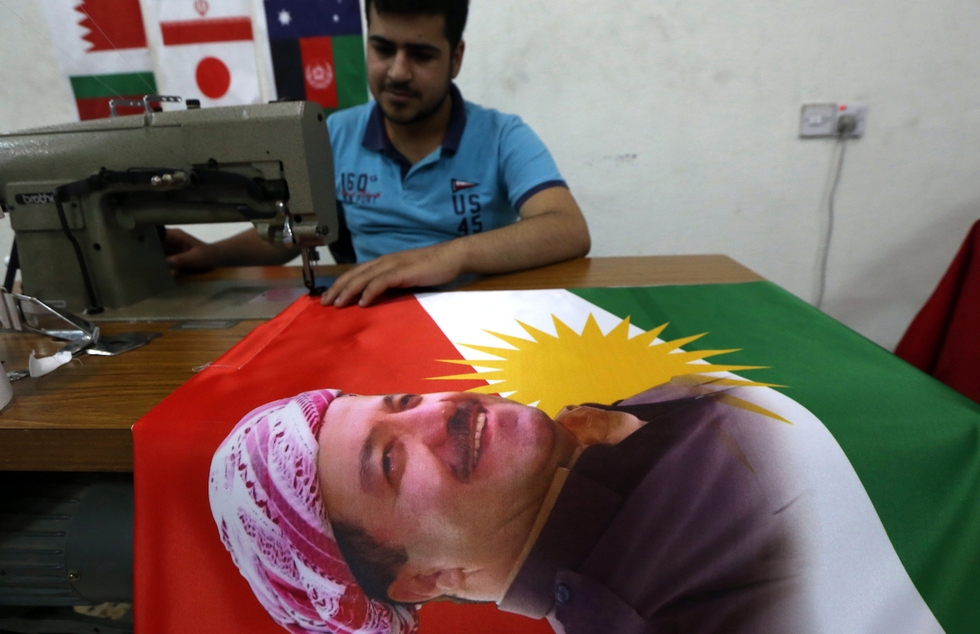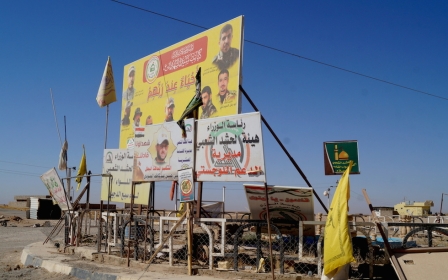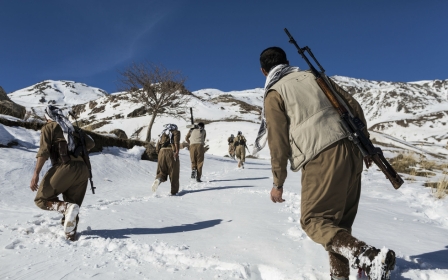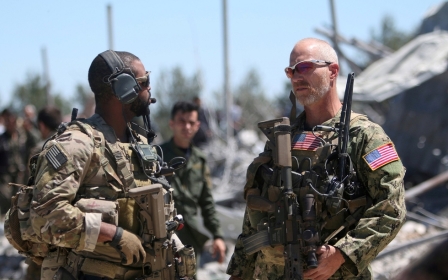Turkey and Baghdad condemn 'irresponsible' Iraqi Kurdistan referendum

Turkey's prime minister has denounced an "irresponsible" decision by Iraqi Kurdistan to hold an independence referendum in September.
The Kurdistan Regional Government (KRG), with which Turkey is otherwise a close regional ally, announced this week that it would vote on whether to split from the rest of Iraq and form an independent region.
The move has alarmed Turkey, which has long been worried about the effect of an independent Kurdish state on their own restive Kurdish population.
"We have enough problems in our region. We believe it is not correct to create a new area of conflict," Binali Yildirim told reporters.
"We believe this is a decision that has been made irresponsibly."
In his statement, the Turkish foreign ministry said it was committed to preserving Iraq's territorial integrity and political unity
"We believe that the announcement by the (Iraqi Kurdish region) to hold an independence referendum on September 25... will constitute a grave mistake," it added.
Turkey has been engaged in a guerilla war with the Kurdistan Workers Party (PKK) since 1984 which has claimed over 40,000 lives.
Although the PKK is ideologically opposed to the Kurdistan Democratic Party (KDP), the biggest party in the Kurdistan Regional Government - and the PKK no longer officially supports an independent Kurdish state - Ankara stills fears the possible outcome of Kurdish self-determination.
Baghdad also rejected the legitimacy of the unilateral referendum call.
"No party can on its own decide the fate of Iraq, in isolation from the other parties," government spokesman Saad al-Hadithi said in a statement on Friday.
"Iraq is constitutionally a democratic, federal country with full sovereignty (..) Any measure from any side in Iraq should be based on the constitution.''
The decision to hold the referendum was taken on Wednesday, during a meeting between KRG President Massoud Barzani and other political leaders.
However, both the anti-corruption Gorran movement and Islamic Group, which combined have 30 seats out of the 111-seat KRG parliament, boycotted the meeting.
A senior Kurdish official, Hoshiyar Zebari, told Reuters in April that a referendum would be held this year to press the case for "the best deal" on self-determination once the Islamic State group is defeated in Iraq.
The exact areas which would be included in a future Kurdish state have been a subject of major controversy. A tweet from Barzani's assistant, Hemin Hawrami, on Wednesday appeared to include a number of disputed territories, including the highly volatile Kirkuk and Sinjar regions, in the referendum:
Sinjar has seen repeated clashes between forces loyal to the KRG and forces linked to the PKK who oppose the KRG system of government. Kirkuk, which has major cultural significance for Kurds, has been hit by repeated controversies, including over the raising of the Kurdistan flag on government buildings.
Abdulla Hawaz, an analyst focused on the Kurdish region of Iraq, said that holding the referendum could be rife with difficulty.
"I think the referendum as agreed by the KDP and the Patriotic Union of Kurdistan (PUK), the two ruling parties, will take place, but the challenge would be holding it in the disputed territories since, as local media has reported, the referendum may take place in the disputed territories like Kirkuk as well," he told Middle East Eye.
"Another challenge would be Gorran, their position on the referendum is still unclear. Not to mention that we still don't yet know Baghdad's reaction and the reaction of the regional powers."
He said, however, that he expected the majority of Iraqi Kurdistan to vote for independence, although that didn't necessarily mean it would become a reality.
"I think the majority will vote yes, but I'm not sure if that is the only measure for success," he explained. "I would rather consider it successful if the independence actually happened - either gradually or directly after the referendum."
The KRG has been particularly hit in recent years by the rise of the Islamic State group. Since 2014, a loss of funds from the central government in Baghdad and the need to boost security and absorb more than a million refugees has led to increasing instability and growing authoritarianism from the KDP.
New MEE newsletter: Jerusalem Dispatch
Sign up to get the latest insights and analysis on Israel-Palestine, alongside Turkey Unpacked and other MEE newsletters
Middle East Eye delivers independent and unrivalled coverage and analysis of the Middle East, North Africa and beyond. To learn more about republishing this content and the associated fees, please fill out this form. More about MEE can be found here.




